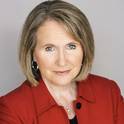
Presentation
The Social and Moral Responsibility of U.S. Americans to Assist in Buildling Human Capacity throughout the World
Conference By Faculty, Center for the Study of Ethics
(2009)
Abstract
There are many individuals throughout the world, particularly in developing nations, who are unable to obtain the education and training necessary to support themselves and families. Needless to say, most of these people will never be able to reach their full human potential. Although more and more U.S. citizens and agencies are interested in becoming involved in initiatives focused on helping others in these countries, there is still much that should be done. This presentation argues that it is the social and moral responsibility of those who have the means and education to assist in building human capacity throughout the world—individual by individual, community by community, and eventually nation by nation. However, this is no small task. Benjamin Franklin once said, “It is no small thing to build a new world.” So where does one start in this endeavor? Leaders of Christian religions, both U.S. based and others, have evangelized the globe for centuries spreading their own brand of “righteous living” to interested and uninterested listeners, with various levels of success. But is religious teaching enough? Some religious leaders preach that more should be done. For example, leaders of the prominent Christian church in Utah have taught for 175 years that we must also teach the importance of developing self reliance, and in fact one advocated teaching others to live “healthy, wealthy, and wise.” Some Utah-based individuals have responded by starting formal entities to do just that—help build the capacity of individuals who do not have the opportunity and means to do so on their own. This presentation will highlight the efforts of three Utah-based organizations who have taken on the charge of educating and assisting others in these three areas: 1) “health” (Deseret International), 2) “wealth” (The Academy for Creating Enterprise), and 3) “wise” (Yehu Bank). Each of these organizations is led by a social entrepreneur who seems to be driven to “change the world.” These individuals will serve as panelist who will address such questions as: Whose world are they attempting to change? How do they want this “new world” to look when it is finished? By whose standards is their new world better than the old world they are trying to change? What ethical principles drive their organizations? Is human capital being enhanced through their efforts and how will these changes influence the future generations of those currently being impacted? These organizations/foundations will serve as case studies to explore these philosophical questions as well as the major topic of this presentation—our social and moral responsibilities to assisting in building human capacity throughout the world.
Keywords
- Social Responsibility,
- Moral Responsibility,
- Ethics,
- Human Capacity
Publication Date
January 21, 2009
Citation Information
Steve Gibson, Susan R. Madsen, Douglas Jackson and Troy Holmberg. "The Social and Moral Responsibility of U.S. Americans to Assist in Buildling Human Capacity throughout the World" Conference By Faculty, Center for the Study of Ethics (2009) Available at: http://works.bepress.com/susan_madsen/26/
